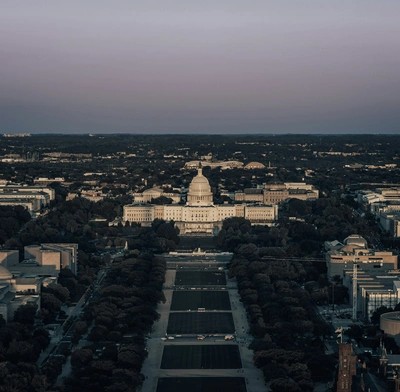President Trump and leaders in the US Congress have until 30 Sept to agree on a budget to keep funding the government.

Failure to reach a deal would lead to a shutdown, bringing all but essential federal work to an immediate halt. This means current crypto legislation working its way through Congress, and regulatory plans at other agencies, including the Securities and Exchange Commission (SEC), would face significant delays.
Digital asset markets, so far, remain unfazed, with most major coins notching gains on Monday morning. Bitcoin (BTC) rose 2.44% in 24 hours, according to data from CoinMarketCap. Ether (ETH) saw a 3.42% increase, while XRP and Solana also saw similar increases. Digital assets are recovering, following last week’s dip which saw the entire crypto market lose $150 billion.
Meanwhile, the Fear and Greed Index came in at 34/100, down from 47 a week before, signaling investors are increasingly fearful.
Bigger picture: Policy Paralysis
A shutdown would suspend progress on crypto bills under deliberation, including the CLARITY Act, a key piece of legislation which passed the US House of Representatives but is still awaiting a vote in the Senate.
This legislation would establish a comprehensive regulatory framework to govern the crypto industry and passed through the House of Representatives at the same time as the GENIUS Act, which covers stablecoins and has already been signed into law by President Trump.
Another piece of legislation awaiting Senate approval is the Anti-CBDC Surveillance State Act, which would permanently block the US Federal Reserve from issuing a digital US dollar. If the impasse drags on, votes could be delayed until the end of the year, or longer, leaving industry participants in limbo as US lawmakers prioritize immediate budget priorities.
This could all have an impact on crypto prices, though the extent of that impact is uncertain. The last time there was a government shutdown was in 2019, when crypto markets were not as developed and held far less institutional capital, so predictions remain difficult for the current crypto sector’s reaction.
Regulatory uncertainty
Agencies like the SEC and Commodity Futures Trading Commission (CFTC) would also have to scale back activity in the event of a government shutdown.
Ongoing rulemaking, enforcement actions and approvals for new crypto products, such as exchange-traded funds (ETFs) or token listings, would be put on hold and face unclear timelines even after the federal government reopens, as staff would face a backlog of work to address.
Other markets
Gold prices hit an all-time high, reaching $3,800 per oz during early morning trading in Europe, while the dollar index (DXY), a measure of the greenback’s value relative to foreign currencies, fell 0.22% on Monday, amid concerns about the US economy’s stability.







